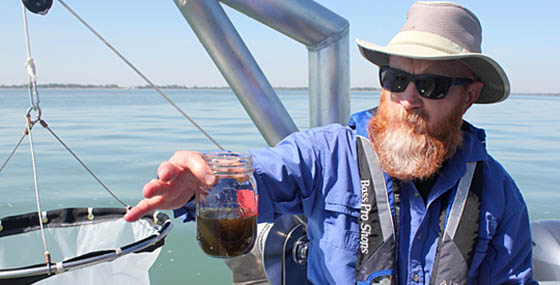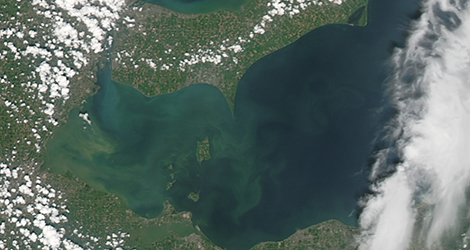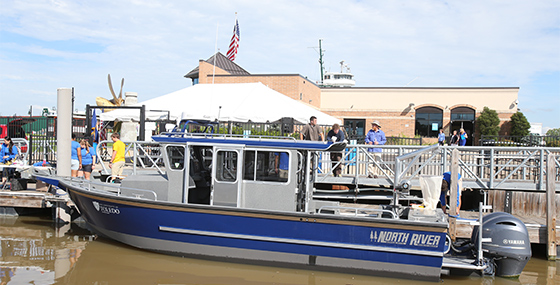Water Crisis in Toledo: 10 Years Later
20+
Faculty researchers currently participating on Water Task Force
150+
Sponsored or externally sponsored water quality projects tackled by Water Task Force since 2014
$50M
External funding supporting water quality projects since 2014
Harmful Algal Bloom Research Initiative (HABRI)
Dr. Tom Bridgeman, co-leader of Ohio's Harmful Algal Bloom Research Initiative (HABRI) discusses the statewide effort to find solutions to toxic algae in Lake Erie.
Ohio Sea Grant
Harmful Algal Bloom Research Initiative
2024 Project Update
Lending Expertise & Data Analysis to Regional Water Utilities
Collaboration between the university and the city of Toledo Water Treatment Plant have been supported by the U.S. Army Corpr of Engineers, U.S. Environmental Protection Agency, National Science Foundation and the Ohio Department of Higher Education through its Harmful Algal Bloom Research Initiative. UToledo Water quality researchers have since expanded their footprint to Celina, Bowling Green, Defiance and Oregon.
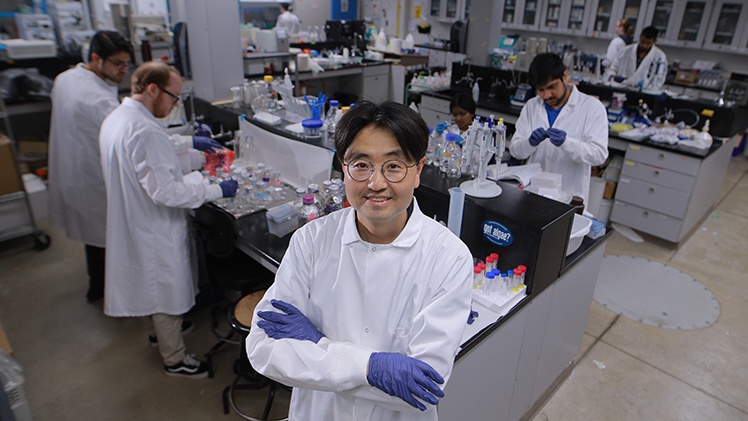
Understanding Health Effects of Harmful Algal Blooms
UToledo researchers have played a leading role in studying how harmful algal toxins affect the lungs, liver and gut. Now they’re taking that research out of the lab and into the community with a first-of-its-kind study that will follow 200 individuals over the next five years to better categorize the health risks of those who spend significant time near Lake Erie.
Exploring Policy, Land Management to Prevent Harmful Algal Blooms
UToledo experts draw on areas of expertise that range from remote sensing technologies to the environmental applications of geophysics to advance land management strategies to prevent harmful algal blooms. Meanwhile the College of Law’s Legal Institute of the Great Lakes has long supported discussions of the policies surrounding harmful algal bloom mitigation, among issues of importance to the Great Lakes.
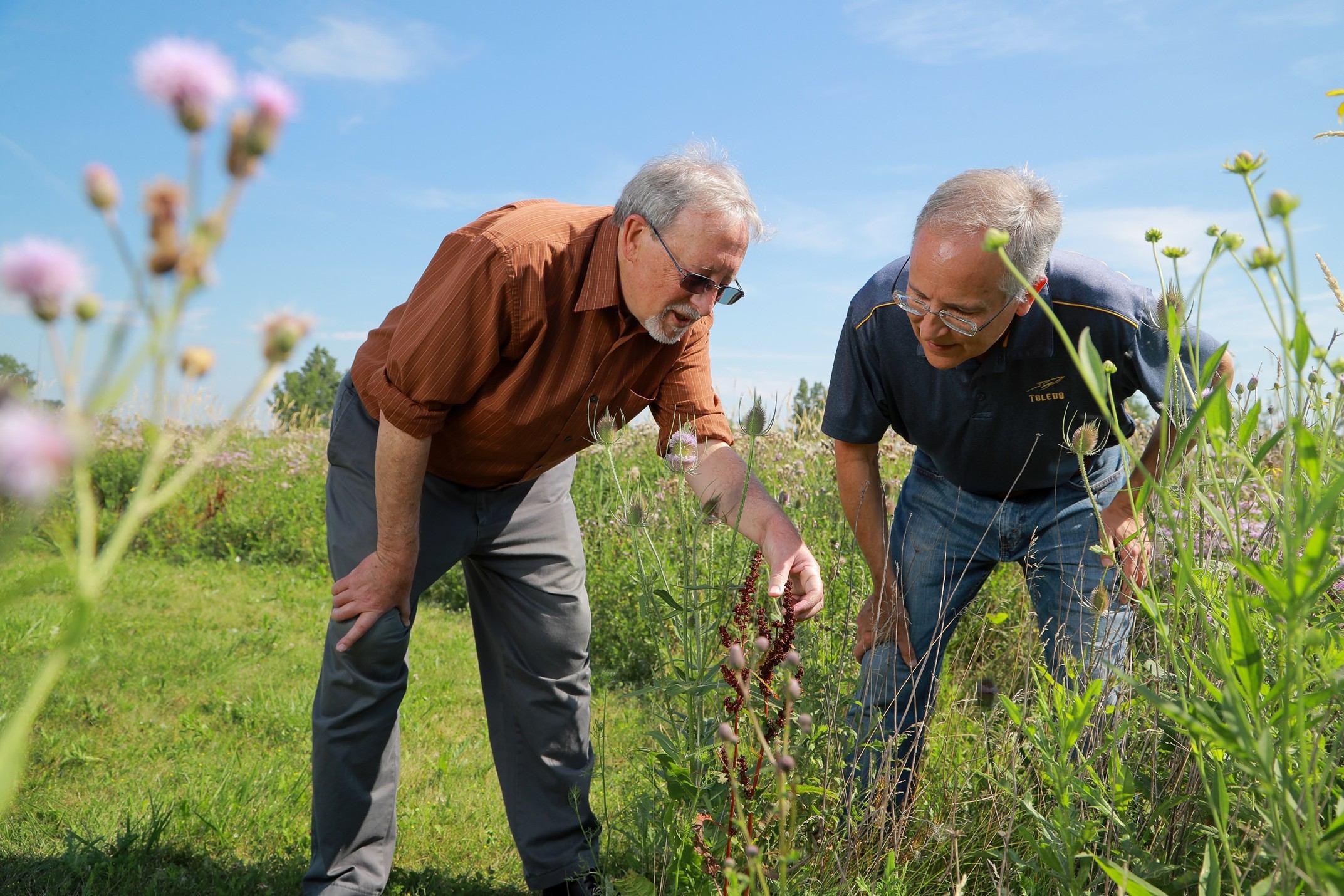
Exploring Flooding Impacts on Freshwater Coastlines
After more than three years of logging and analyzing field data through COMPASS-FME, part of a large-scale collaborative project funded with $20 million from the U.S. Department of Energy, UToledo researchers are shifting from the observational to experimental in their exploration of how coastlines respond to changing water levels.



